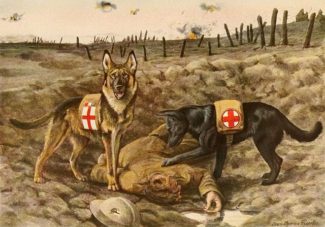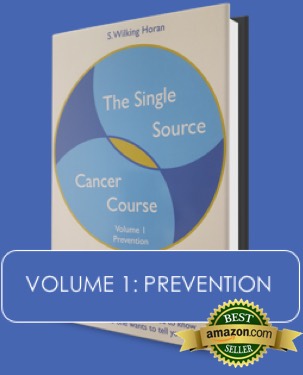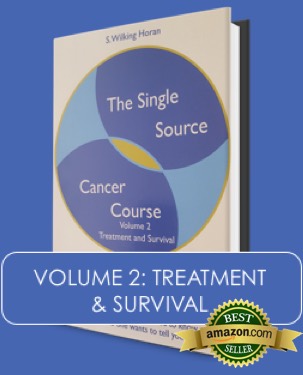 5 GREAT BENEFITS OF LOVING AN ANIMAL
5 GREAT BENEFITS OF LOVING AN ANIMAL
Welcome back to the Blog everyone. April is Prevention of Cruelty to Animals Month. So, this Blog is literally going to the dogs – and cats — and is devoted to all the animals in our lives. This month we’re not only bringing focus to the proper treatment of the world’s animals, but we’re going to discuss the incredible health benefits our animals bestow on us as well.
The French novelist Anatole France once wrote, “Until one has loved an animal, a part of one’s soul remains unawakened.”
Of course, for those of us who have pets, we understand and agree with that statement completely. But, there’s more to our relationship with our pets than mere comfort and enjoyment. Our pets are actually good for our emotional, physical and mental wellbeing.
I’ve survived three different cancers, and during the last few decades my sweet dogs Lady and Angel have been instrumental in helping me to remain productive and positive. They’ve inspired me to fight through the hard times and to be grateful for the good times. Their mere presence always makes me feel better, no matter what difficulty I may be experiencing. They enable me to handle pain and discomfort more easily and truly, I seem to heal faster.
I, however, am not the only person who feels this way. For all the reasons I’ve stated, today Pet Therapy is widely used today in hospitals, assisted living facilities and hospice care centers. Modern Pet Therapy actually dates back to the 1860s and the famed nurse Florence Nightingale. Through her work with the ill and disabled, Nurse Nightingale was the first caregiver to recognize the social and emotional support animals could provide for institutionalized and mentally ill patients.
Following her example, the American Red Cross later deployed dogs to work in convalescent and military hospitals after World War II. More recently other relief organizations have utilized dogs, cats and rabbits to help victims of Hurricane Katrina, Superstorm Sandy and the Sandy Hook tragedy to calm and reassure the survivors.
Interestingly, renowned oncologist Edward Creagan of the Mayo Clinic stated, “If pet ownership was a medication, it would be patented tomorrow. Having a pet around is like an effective drug – but without any side effects. I can’t always explain it.”
None of us can always explain it. But we can objectively verify it. Based on findings from several studies, here are just five amazing health benefits of pet ownership.
REDUCES STRESS
On a chemical level, owning and interacting with your pet appears to decrease levels of the stress hormone cortisol in the blood, which can damage the body. As a result, we become more physically relaxed and mentally alert.
 FIGHTS DEPRESSION
FIGHTS DEPRESSION
Petting, playing with and talking to our pet increases the levels of our “feel good” chemical dopamine. This is turn relaxes our nervous system, decreases mental anxiety and improves our emotional outlook.
LOWERS BLOOD PRESSURE
Focusing on our pets can shift our attention away from our problems and worries. This interaction can increase our body’s level of oxytocin, the hormone that promotes love and trust and is linked to a reduction in blood pressure and heart rate. And, this can provide us with a lower risk for developing heart disease and an increased chance for surviving it.
IMPROVES OUR IMMUNE SYSTEM
Maximize the healing powers of your pet not just by talking, but by reaching out and petting her or him. The importance of touch in our relationships with our pets cannot be overemphasized. People who pet dogs, for example, experience an increase in immunoglobulin A, an antibody that supports and improves the immune system.
INCREASES FEELINGS OF WELL-BEING
The physical contact we have with our pet decreases feelings of isolation and loneliness. The increase in our “feel good” chemicals of dopamine and serotonin just make us feel better — and allow us to remain happy and relaxed while maintaining a stronger and more positive self-image.
So, perhaps it’s not really important that we understand all the “whys” of pet ownership and the resulting health benefits. Maybe it’s just enough that we simply recognize the result.
Debbie Custance, a psychologist at Goldsmiths College, University of London, observed, “When humans show us affection, it’s quite a complicated thing that involves expectations and judgments. But, with a pet it’s a very uncomplicated, non-challenging interaction with no consequences.”
No matter how we look at it, pets can greatly influence the way our bodies function, and the way we feel about ourselves and the world around us. They remain our friends, teachers and healers. And they are wonderful conduits to a world of trust and empathy, which has been especially important over the last few years.
Thanks again for joining me everyone! Until next time, stay safe, stay in GOOD HEALTH and . . .
TAKE THE COURSE AND TAKE CHARGE!



Leave a Comment